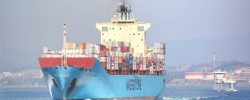The Economic Costs of Climate Change he economic costs of climate change are vast and multifaceted. They include direct costs related to damage from extreme weather events such as hurricanes, floods, and wildfires, which are becoming more frequent and severe due to climate change. These events can cause massive destruction of infrastructure, homes, and businesses, leading to significant repair and replacement costs.
In addition to these direct costs, there are indirect costs associated with climate change. These include changes in agricultural productivity due to shifting weather patterns, increased healthcare costs due to climate-related diseases, and the potential displacement of people due to rising sea levels or extreme weather.
Moreover, there are transition costs associated with shifting from a fossil fuel-based economy to a low-carbon economy. These include the costs of investing in renewable energy infrastructure, retraining workers, and potentially, the stranded assets in the fossil fuel industry.
Preparing Economies for Climate Change iven the significant economic risks posed by climate change, economies around the world are taking steps to prepare. One key strategy is to transition to a low-carbon economy. This involves investing in renewable energy sources, improving energy efficiency, and promoting sustainable practices in industries such as agriculture and manufacturing.
Another important strategy is to build resilience to the impacts of climate change. This can involve investing in infrastructure that can withstand extreme weather events, developing early warning systems for such events, and implementing policies to promote climate-smart agriculture.
Furthermore, economies are increasingly recognizing the need to integrate climate risks into financial decision-making. This involves assessing the exposure of businesses and investments to climate risks and incorporating these risks into financial risk management practices.
The economic impact of climate change is a complex and urgent issue. While the costs are potentially enormous, there are also opportunities for economies that proactively address this challenge. By transitioning to a low-carbon economy and building resilience to climate impacts, economies can not only mitigate the economic risks of climate change but also seize new economic opportunities in the emerging green economy.














